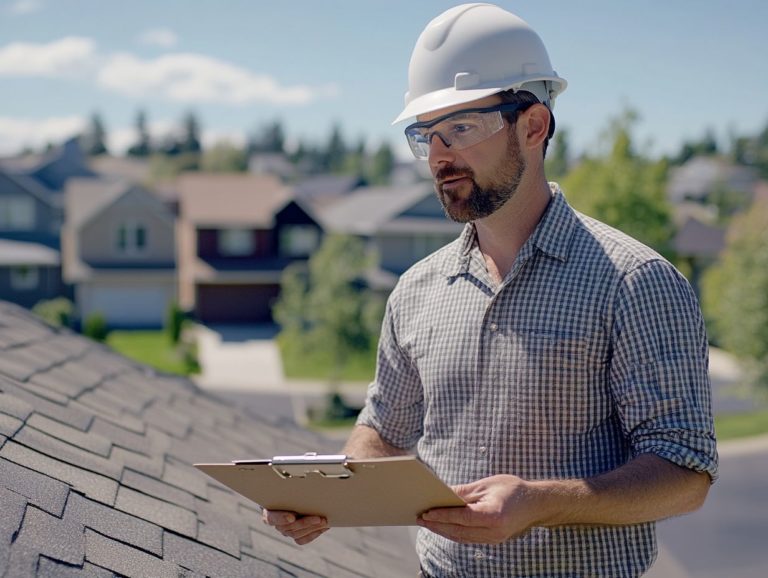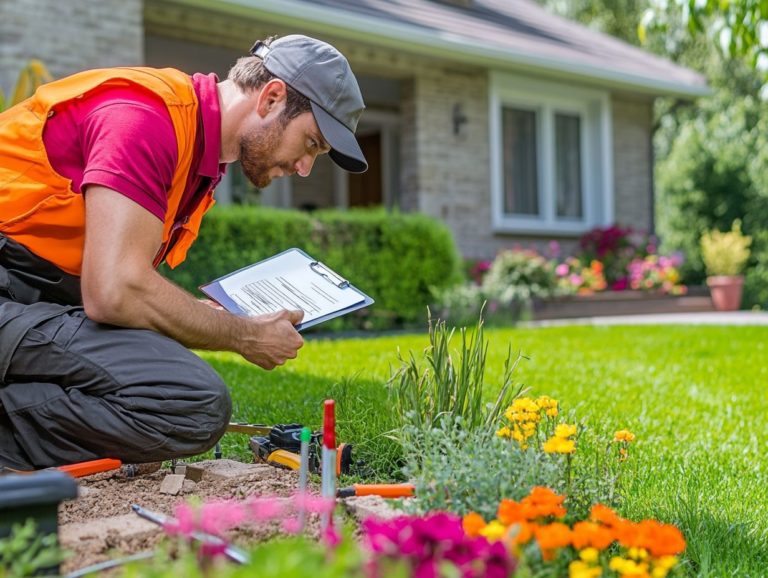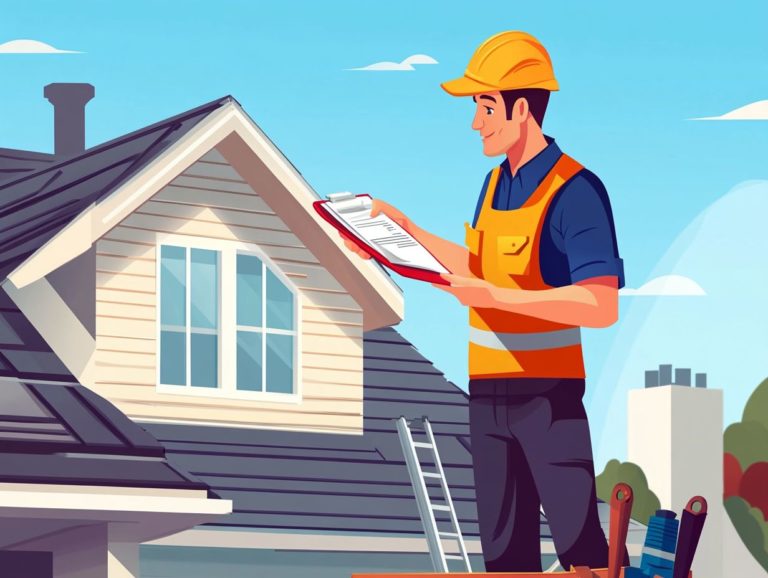The Importance of Home Inspections for Property Investors
Investing in real estate can be rewarding but comes with its own risks.
A crucial step in this journey is conducting a thorough home inspection. By knowing what to expect during the inspection and identifying common issues, you can significantly impact your investment decisions.
This article covers the inspection process, highlights potential red flags, and offers tips on choosing a qualified inspector. With this information, you can make informed choices that enhance the value of your investment.
Contents
- Key Takeaways:
- What to Expect from a Home Inspection
- Common Issues Found in Home Inspections
- Costs and Benefits of Home Inspections
- How to Choose a Qualified Home Inspector
- Maximizing the Value of a Home Inspection
- Using Inspection Reports to Make Informed Decisions
- Frequently Asked Questions
- What is the importance of home inspections for property investors?
- What are the benefits of getting a home inspection as a property investor?
- When is the best time to schedule a home inspection for a potential investment property?
- What does a home inspector look for during a property inspection?
- Can a home inspection report affect the value of an investment property?
- How can investors ensure they hire a reputable and thorough home inspector?
Key Takeaways:
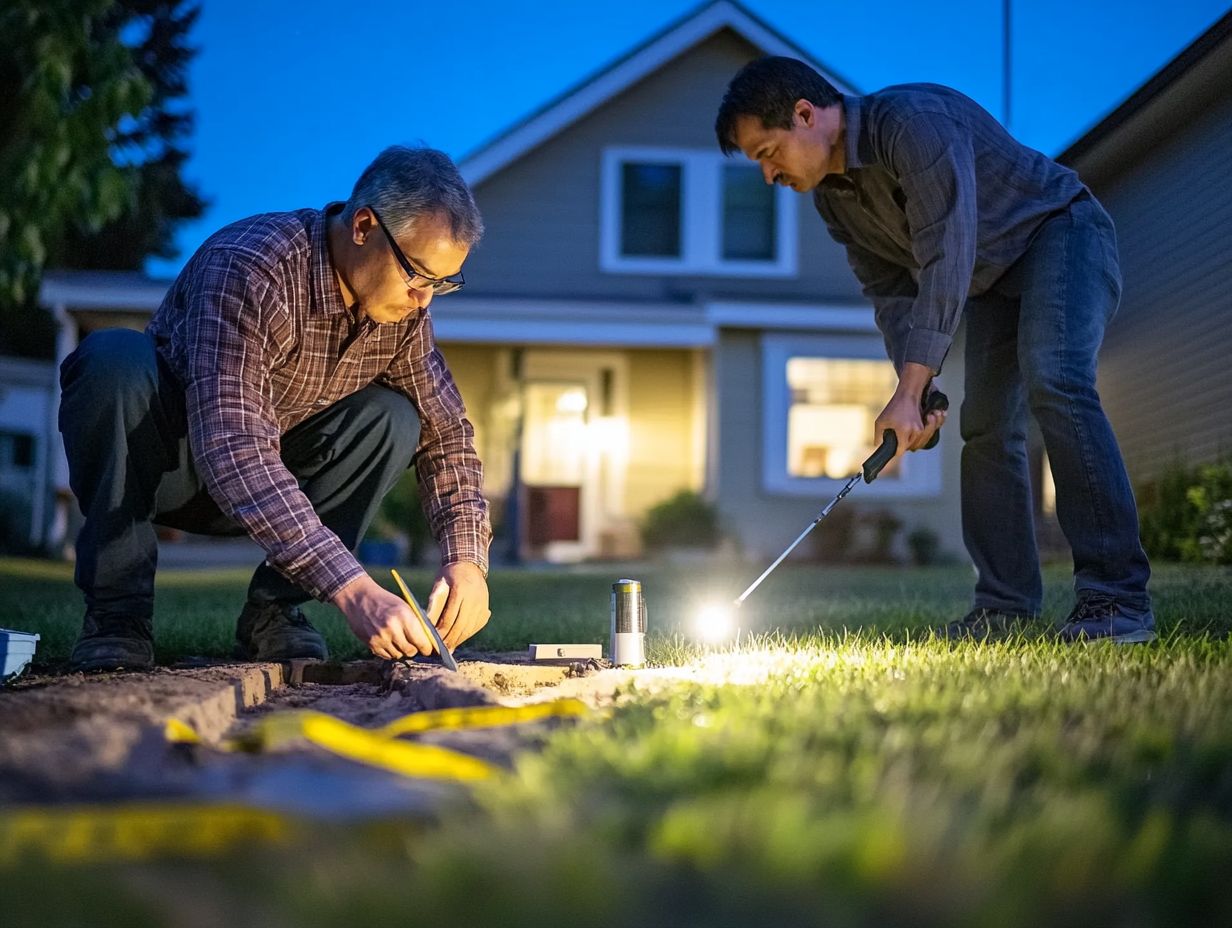
Home inspections are crucial for property investors to assess the condition of a potential investment and identify any issues or red flags. A thorough inspection provides valuable insights into the overall condition of a property and potential repair costs, helping investors make informed decisions. Understanding the importance of home inspections for property investors can guide you when selecting a home inspector; consider their qualifications, experience, and reputation to ensure a reliable inspection.
Why Home Inspections are Important for Investors
Home inspections are vital for real estate investors, offering insights into a property’s condition, potential risks, and overall integrity that can influence your investment decisions. Understanding the importance of home inspections in real estate is crucial for making informed choices.
A thorough inspection helps you identify structural issues, environmental hazards, and safety concerns that could affect your finances and negotiating power. By knowing repair costs upfront, you can make better choices about your investment portfolio.
These inspections reveal hidden problems, such as mold, pest issues, or roof leaks, that can pose significant risks if ignored.
A reliable inspection helps you see immediate costs and serves as a powerful negotiation tool. Presenting findings from the inspection report can lead to better purchase terms or necessary repairs before closing the deal.
Taking action now can save you money down the line, empowering you to make strategically sound decisions that align with your investment goals.
What to Expect from a Home Inspection
During a home inspection, expect a detailed evaluation by a qualified inspector. They will carefully check various components of the property, including its structural integrity, electrical systems, plumbing, and HVAC (heating, ventilation, and air conditioning) systems.
The inspection report will highlight the property’s strengths and weaknesses, giving you essential insights into its current condition and potential future repair costs.
Overview of the Inspection Process
The inspection process begins when you hire a qualified inspector to thoroughly examine the property. They will evaluate systems like plumbing, electrical, and HVAC to identify structural issues or safety concerns. This evaluation is crucial for you as a home buyer or investor, helping you understand the true condition of the property.
Once you ve chosen an inspector, prepare for the on-site evaluation. This might involve gathering important documents, such as previous inspection reports and maintenance records, which provide valuable context for any issues that may arise.
During the visit, the inspector will carefully check every corner of the property, looking for signs of wear and tear, water damage, or infestations. After the inspection, you ll receive a comprehensive report detailing all findings and recommendations.
Engaging a professional inspector is essential; their expertise can uncover details that might otherwise be missed, highlighting the importance of pre-purchase home inspections and ensuring you make informed decisions about your investment.
Common Issues Found in Home Inspections

As an investor, you may face challenges during home inspections. These challenges can jeopardize your investment choices, including structural issues, mold problems, and pest infestations.
Identifying these concerns early through a trusted inspection empowers you to factor in potential repair costs and safety hazards. Understanding the importance of home inspections enables you to make informed decisions about your investment properties.
Potential Red Flags for Investors
During a home inspection, be vigilant about potential red flags. These may point to deeper issues, such as weakened building structure, environmental dangers, or extensive water damage.
Identifying these warning signs is a powerful negotiation tactic. It can influence the purchase price and repair negotiations.
Pay attention to issues like foundation cracks, which may indicate instability. Also, watch for improper drainage systems that could lead to future flooding.
Evaluate how these problems may impact your repair budgets. Significant issues can escalate in cost quickly.
Bringing in a professional for estimates clarifies necessary repairs. This fortifies your position during negotiations, allowing you to advocate effectively for price reductions or seller concessions.
Costs and Benefits of Home Inspections
Home inspections may incur costs, but the advantages far outweigh the initial investment. This is particularly true for home buyers and real estate investors, as understanding the importance of home inspections in real estate transactions can save you from future issues.
By uncovering repair costs and potential safety hazards, inspections empower you to make informed financial decisions. This foresight enhances the success of your investment portfolio.
Financial Considerations for Investors
Weigh various financial aspects when considering home inspections, especially repair costs. Understanding the financial implications of potential issues revealed during an inspection helps refine your investment strategy.
Craft a comprehensive budgeting plan that includes the inspection fee and expected repairs. Each finding can guide your decision on whether the property remains a viable investment or needs reassessment.
Prioritize risk assessment by leveraging inspection reports to pinpoint major and minor issues. This financial foresight empowers you to negotiate confidently, securing a better deal while safeguarding your investment.
How to Choose a Qualified Home Inspector
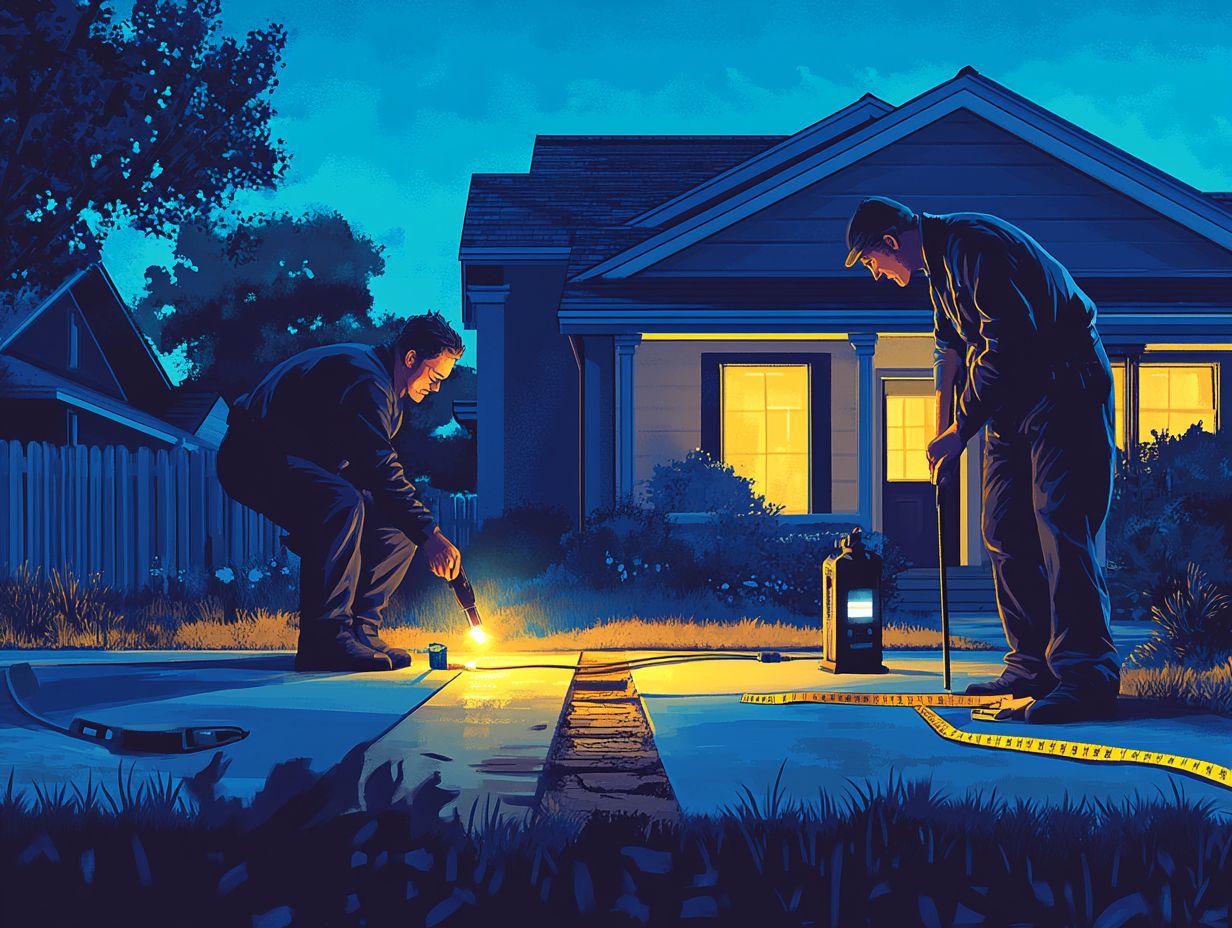
Selecting a qualified home inspector is crucial for a reliable inspection. This can reveal potential issues and deliver a thorough evaluation of the property.
As a home buyer or investor, prioritize professionalism and experience when choosing an inspector. This decision safeguards your financial interests and ensures a comprehensive assessment of the property’s condition.
Key Factors to Look for in an Inspector
When you’re on the hunt for a qualified inspector, it’s essential to zero in on several key factors: their credentials, experience in the field, and reputation for professionalism. A thorough inspection by a knowledgeable inspector can profoundly influence your understanding of a property’s condition.
Make it a priority to ensure that these professionals hold certifications from recognized organizations; this signifies their dedication to upholding industry standards. Field experience is crucial, especially with a variety of property types, as it equips inspectors with the ability to spot potential issues that might not be immediately obvious.
Pay attention to feedback from previous clients, as reviews and testimonials provide valuable insights into an inspector’s reliability and thoroughness. Together, these attributes guarantee that the inspection report will be both comprehensive and accurate, ultimately granting you peace of mind and a clearer perspective on any necessary repairs or negotiations.
Maximizing the Value of a Home Inspection
To truly maximize the value of a home inspection, use the inspection reports to inform your decisions surrounding property evaluation and potential repairs.
By looking into the insights these reports provide, you can enhance your negotiating power and effectively tackle any safety concerns or repair costs that may arise.
Using Inspection Reports to Make Informed Decisions
Inspection reports are vital tools for you as a home buyer or investor, offering essential insights that help you make informed decisions about property evaluations and repair recommendations, especially regarding the importance of home inspections in property sales.
Grasping the findings in these reports allows you to effectively address safety concerns and assess potential investments. By carefully reviewing each section of the report, you can pinpoint major issues that require immediate attention as well as minor repairs that could be negotiated into the purchase price.
A sharp focus on these details not only gives you power during negotiations with sellers. It also underscores the importance of being proactive about future repairs.
Incorporating the inspection findings into your financial planning enables you to anticipate upcoming costs, ensuring you’re financially prepared for any necessary renovations or maintenance.
This proactive approach can lead to a smoother transition into homeownership and help safeguard your investment for the long run.
Frequently Asked Questions
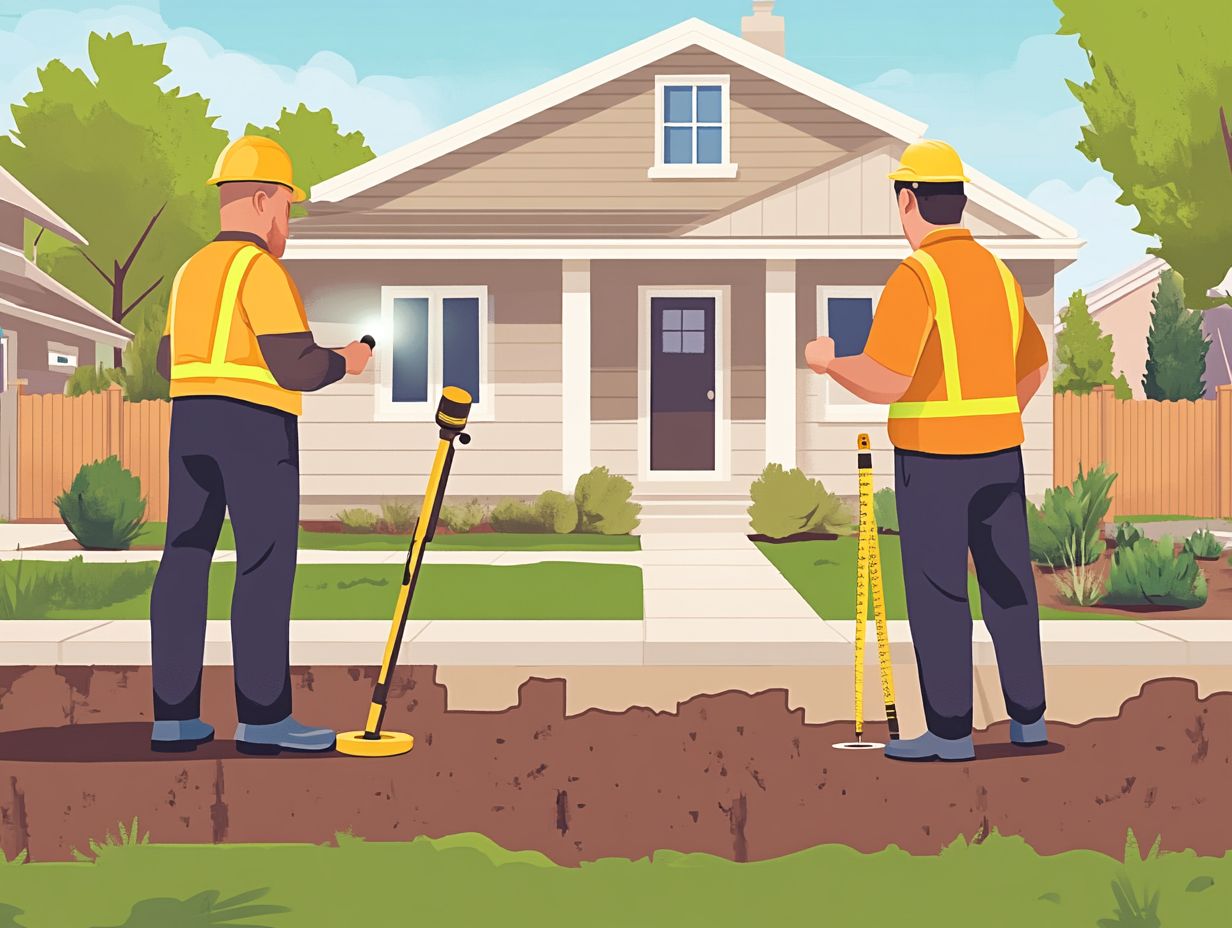
What is the importance of home inspections for property investors?
Home inspections are a game-changer for property investors as they provide a detailed check-up of a property’s condition. This allows investors to identify any potential problems or defects before making a purchase, highlighting the importance of home inspections in property transactions, helping them make informed decisions and avoid costly surprises.
What are the benefits of getting a home inspection as a property investor?
- Gain a better understanding of the property’s condition.
- Negotiate for repairs or a lower price based on the inspection report.
- Enjoy peace of mind knowing the property is safe and sound.
When is the best time to schedule a home inspection for a potential investment property?
The best time to schedule a home inspection for a potential investment property is during the due diligence period, which typically occurs after an offer has been accepted but before the purchase is finalized. Understanding the importance of home inspections for real estate transactions allows investors to back out of the deal if the inspection report reveals major issues.
What does a home inspector look for during a property inspection?
A home inspector will typically look for structural and mechanical issues, such as foundation problems, roof damage, plumbing and electrical systems, and any signs of water damage or mold. They will also check for safety hazards and code violations.
Can a home inspection report affect the value of an investment property?
Yes, a home inspection report can affect the value of an investment property. If significant issues are found during the inspection, it may lower the property’s value and give investors leverage to negotiate for a lower price. On the other hand, the importance of home inspections in real estate deals becomes evident when a clean inspection report can increase the property’s value and reassure investors about their purchase.
How can investors ensure they hire a reputable and thorough home inspector?
Research and read reviews from past clients to find a reputable home inspector. Ask other investors or real estate professionals for recommendations.
Choose a qualified home inspector to get the best inspection report. Don’t wait choose a qualified inspector today!


